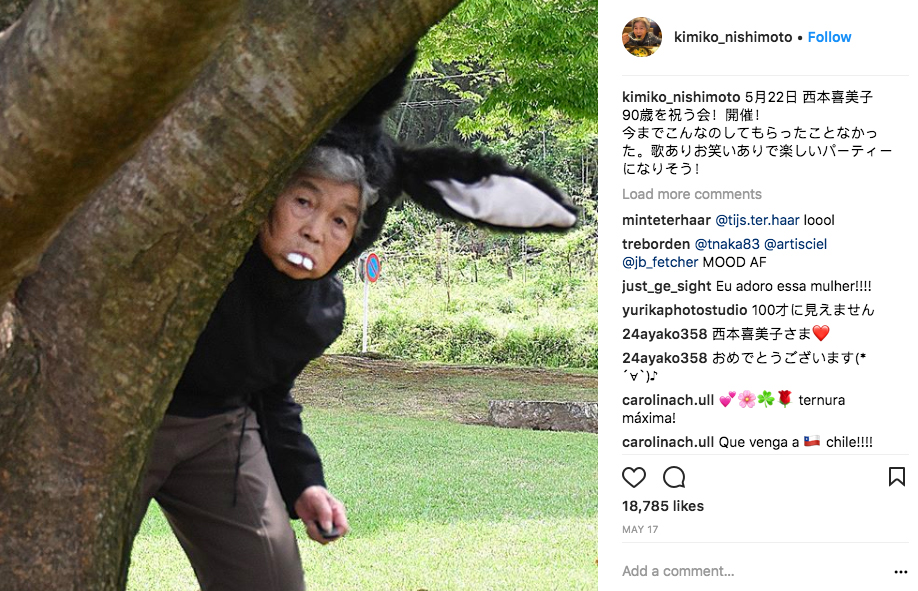In the first light of an autumn morning, Sylvia Durrant, 85, is loading 10 penguins into a small trolley.
It is 6am: time for swimming lessons.
Videos by VICE
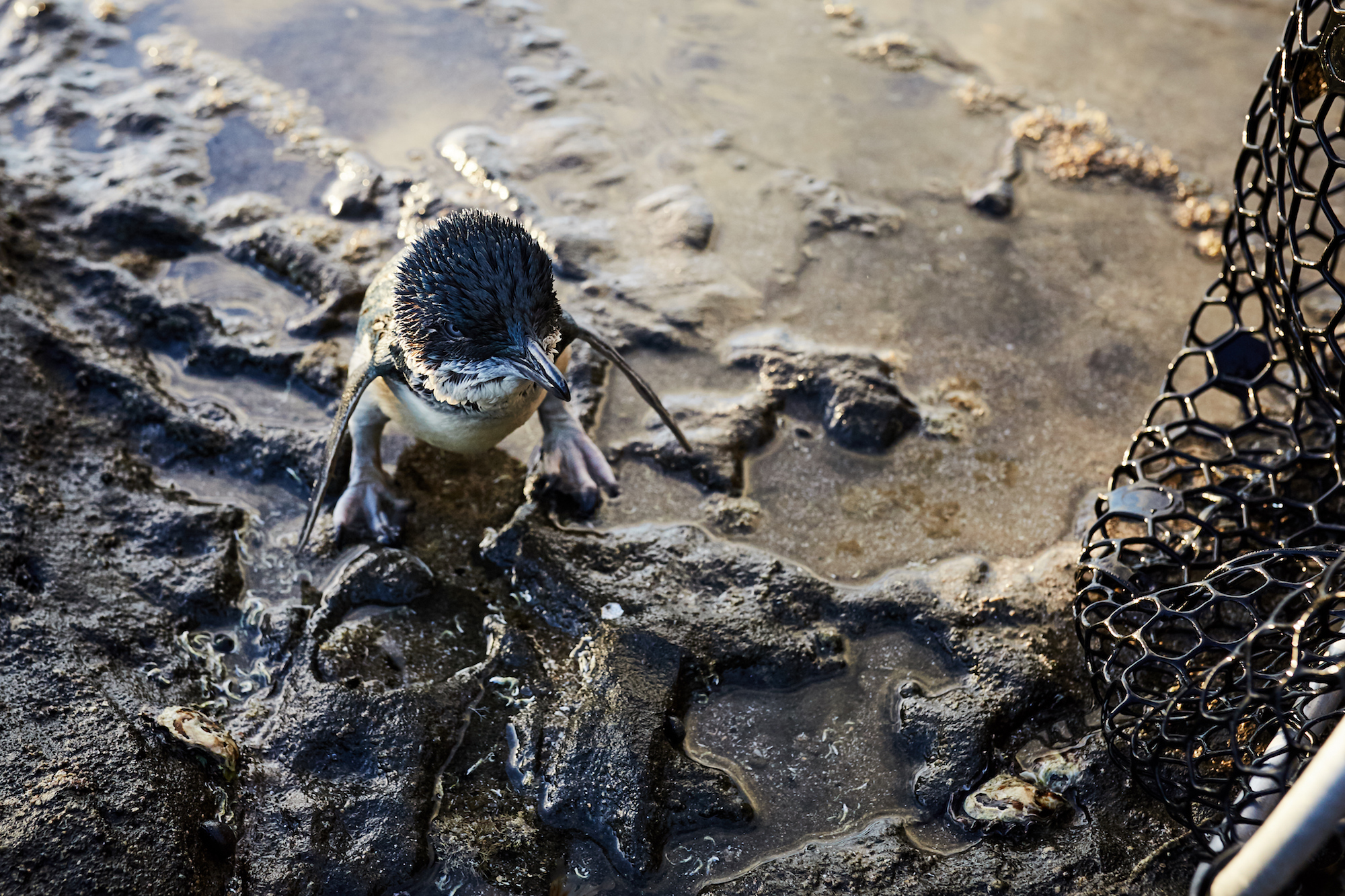
As the penguins wake, she places them one by one into a blue laundry basket and a wire cage, which in turn is placed in the red four-wheeler she and friend Annwyne Standish will trundle down to Auckland’s suburban Rothesay Bay beach, over the stones, to the cold early-morning sea.

Sylvia Durrant is an 85-year-old retired nurse who has been caring for sick and injured birds for 35 years. This morning, the penguins waddle through the shallows under the watchful eye of Missy, Sylvia’s dog, who will herd them back if they stray too far.

Some of the penguins remain in her care permanently, unable to survive in the wild. Her long-term companions include Dinky, a penguin brain-damaged by seagulls pecking his head after he got stuck in the sand. Dinky has trouble walking and topples over often, but can swim “almost like a normal penguin”.
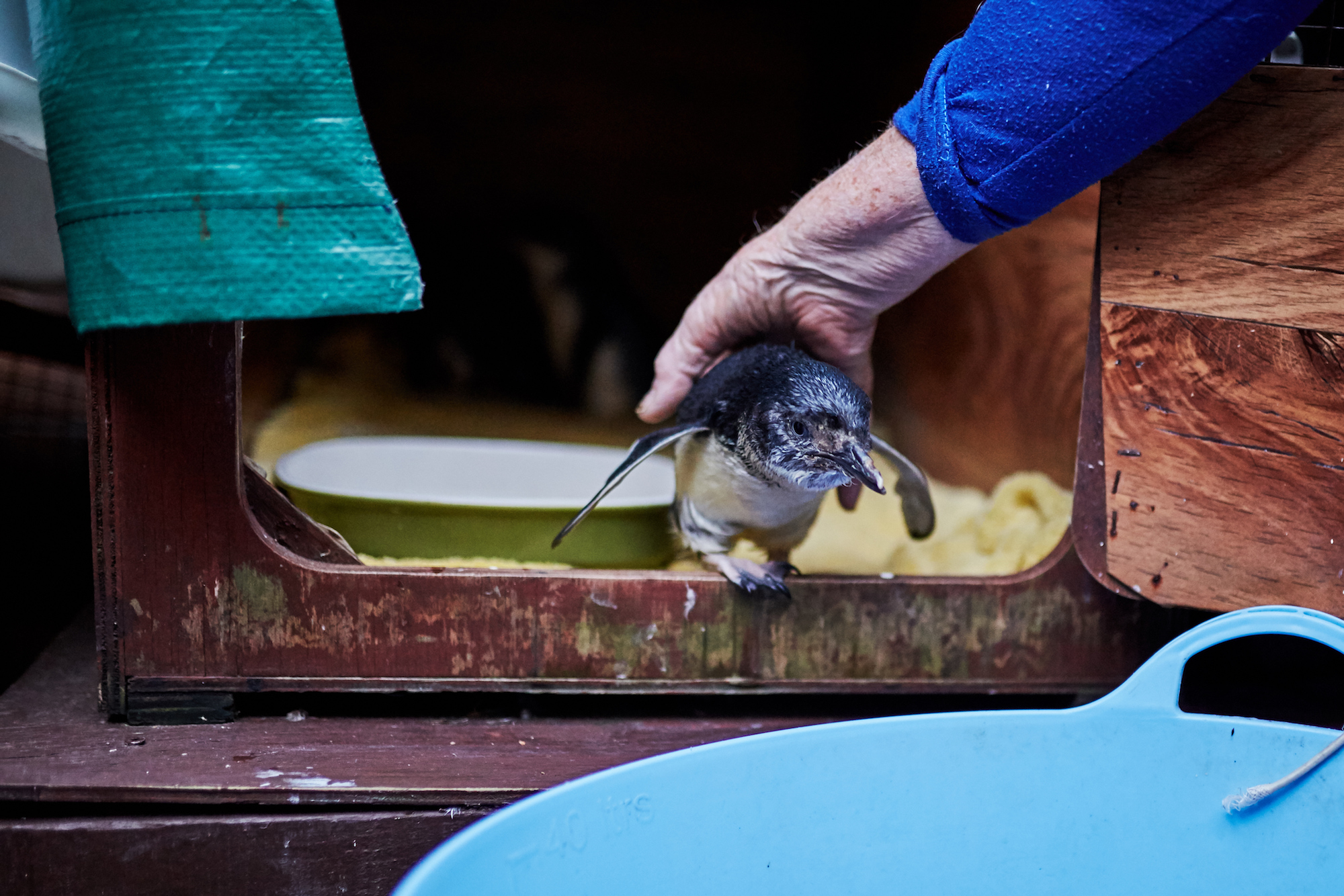
Casey and Bernie are each missing one flipper—Casey’s bitten off by a fish, and Bernie born without. ‘TT’—short for ‘Temper Tantrum’—is an aggressive little penguin responsible for the bruising that marks the backs of Sylvia’s hands.
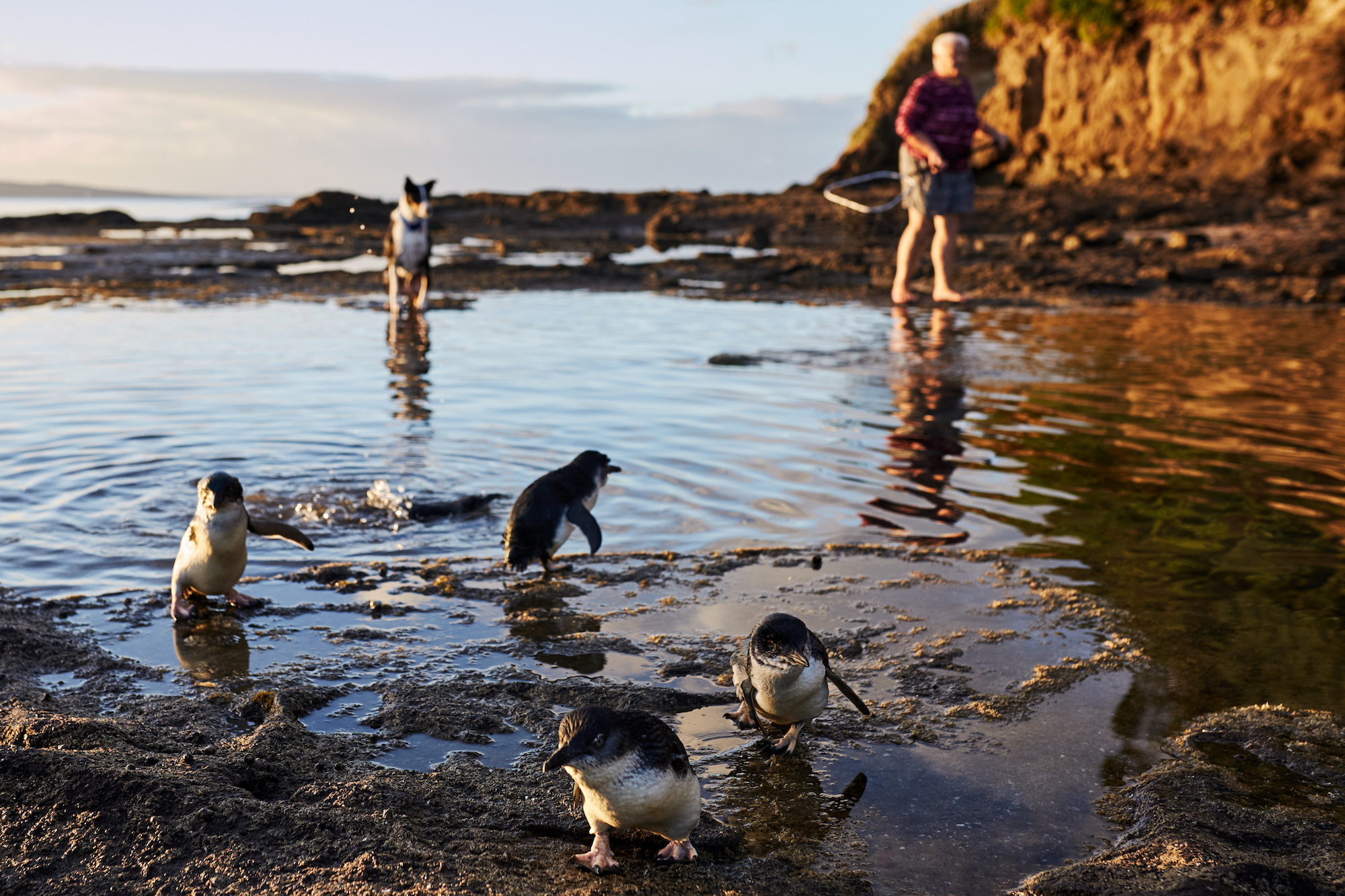
Others in the penguin crew are just with Sylvia temporarily—four of her current charges are in her care because they were born in January instead of October and were “too young and not fat enough” to be out on their own. They will be released into the wild—”on the far side of Matakana”—at the end of winter.
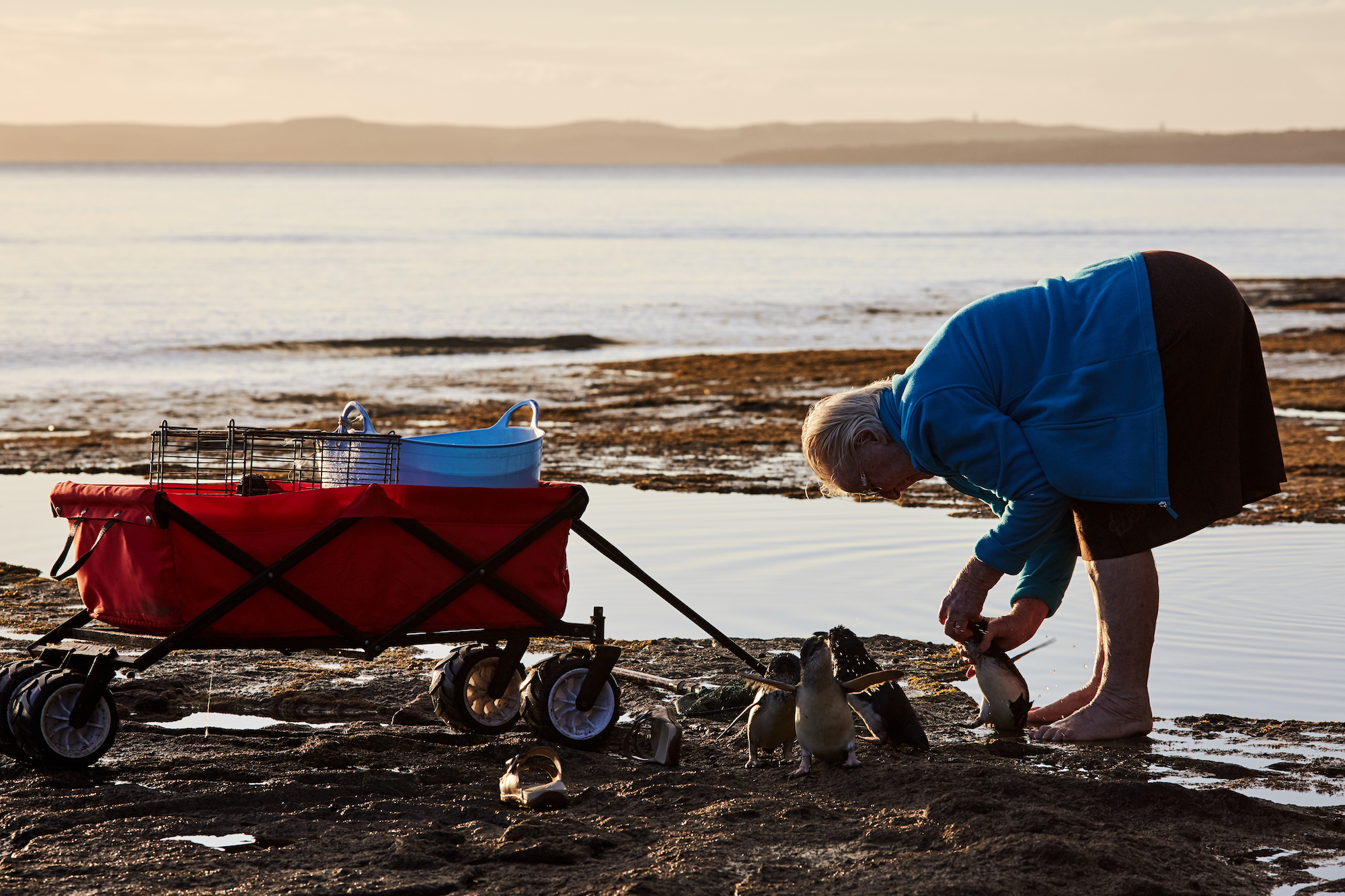
Sylvia says she began doing caring for her birds out of boredom, and after her husband’s passing ramped up the operation to the point where she was taking on thousands of birds a year. They aren’t all penguins—Sylvia takes any bird, from pigeons, to hawks, to the blue, trembling kingfisher she held in her palm this morning. Annwyne Standish is Sylvia’s main helper, and has been taking the penguins swimming for over 20 years.
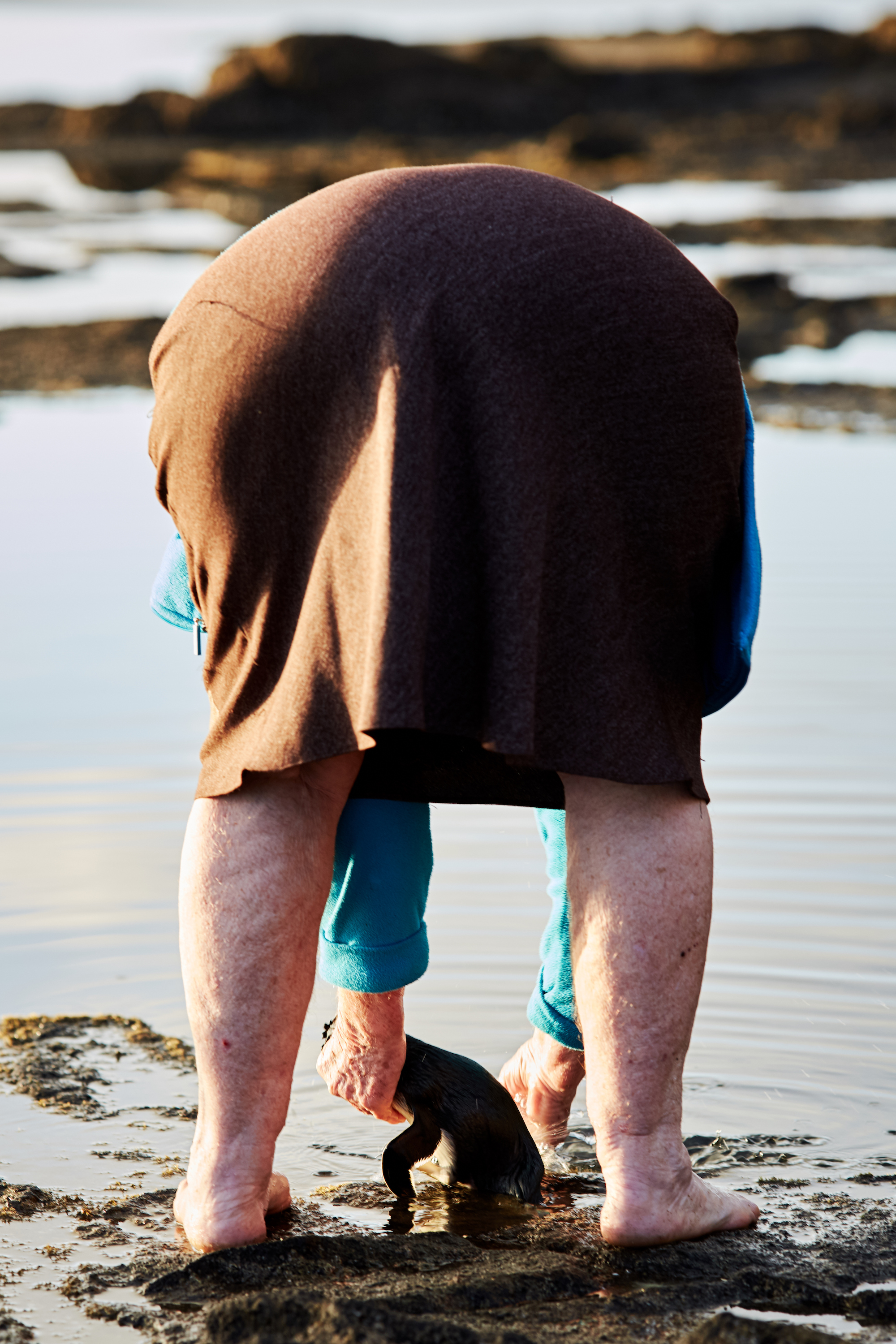
Sylvia usually has 3-4 penguins in her care for rehabilitation and release, but she says the number skyrocketed to over 30 penguins during the last America’s Cup in Auckland, with the yachts and sailboats disrupting the fish, who leave the area. The penguins cannot travel as far as the fish, she says, which they rely on for food, and some starved to death. Sylvia is nervous it will happen again when the America’s Cup returns in 2021.

It costs $30 per week to feed a penguin, which she does daily by hand. They eat squid, fish, prawns and other raw seafood. The penguin and other bird enclosures are also cleaned daily, so she requires clean linens as well as monetary donations.
If you need to drop off a bird to Sylvia, there’s more information here.
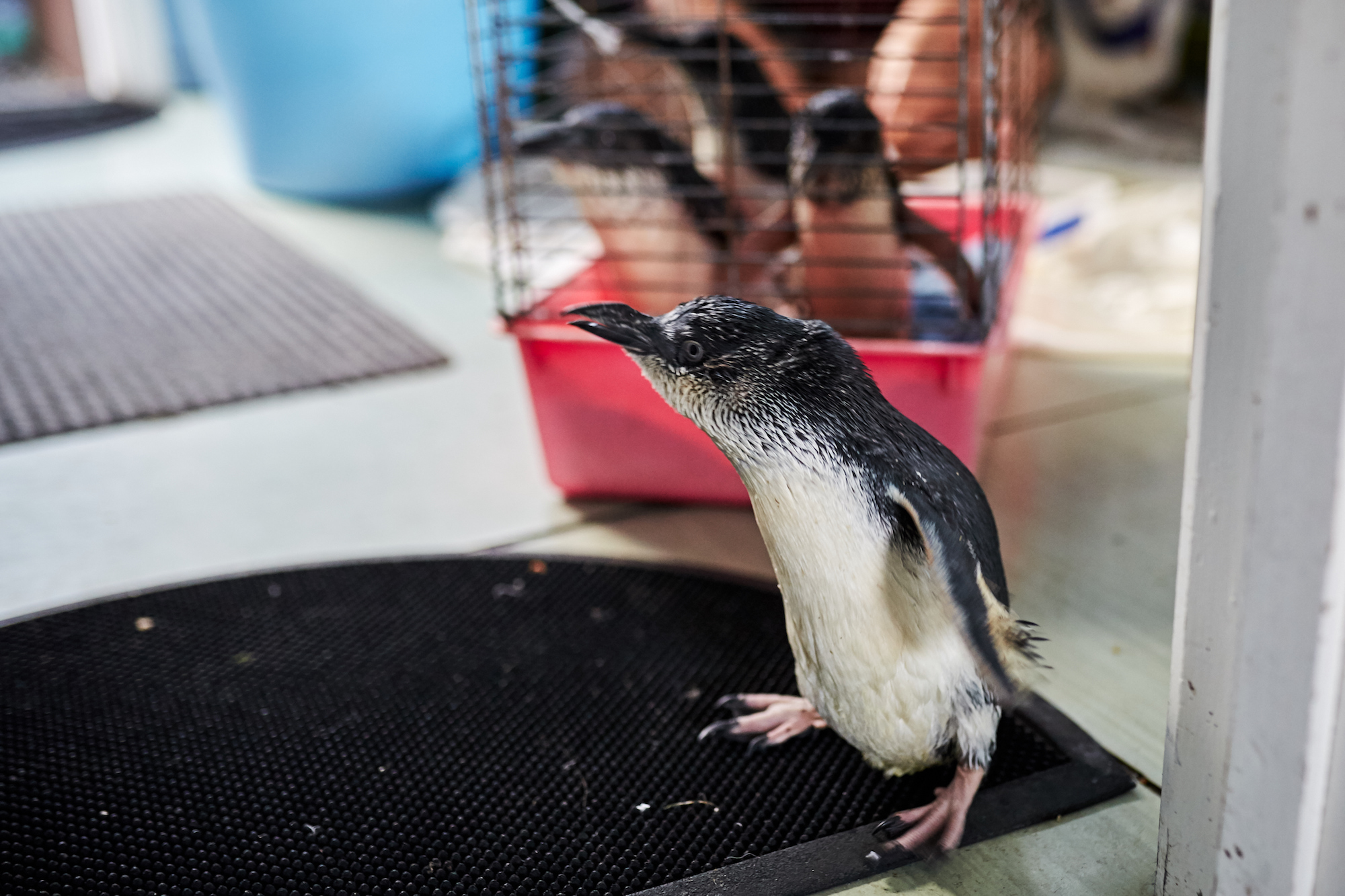
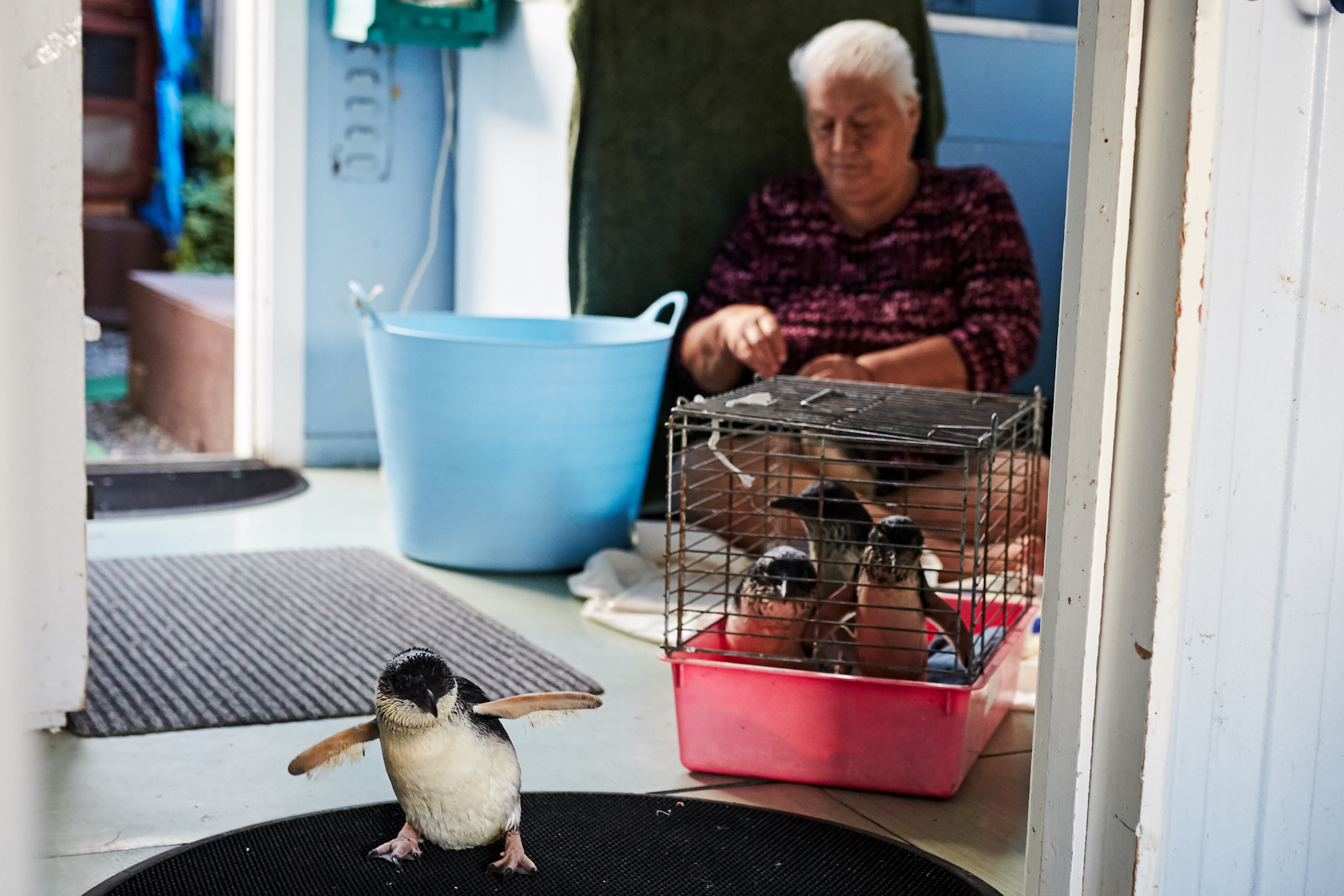
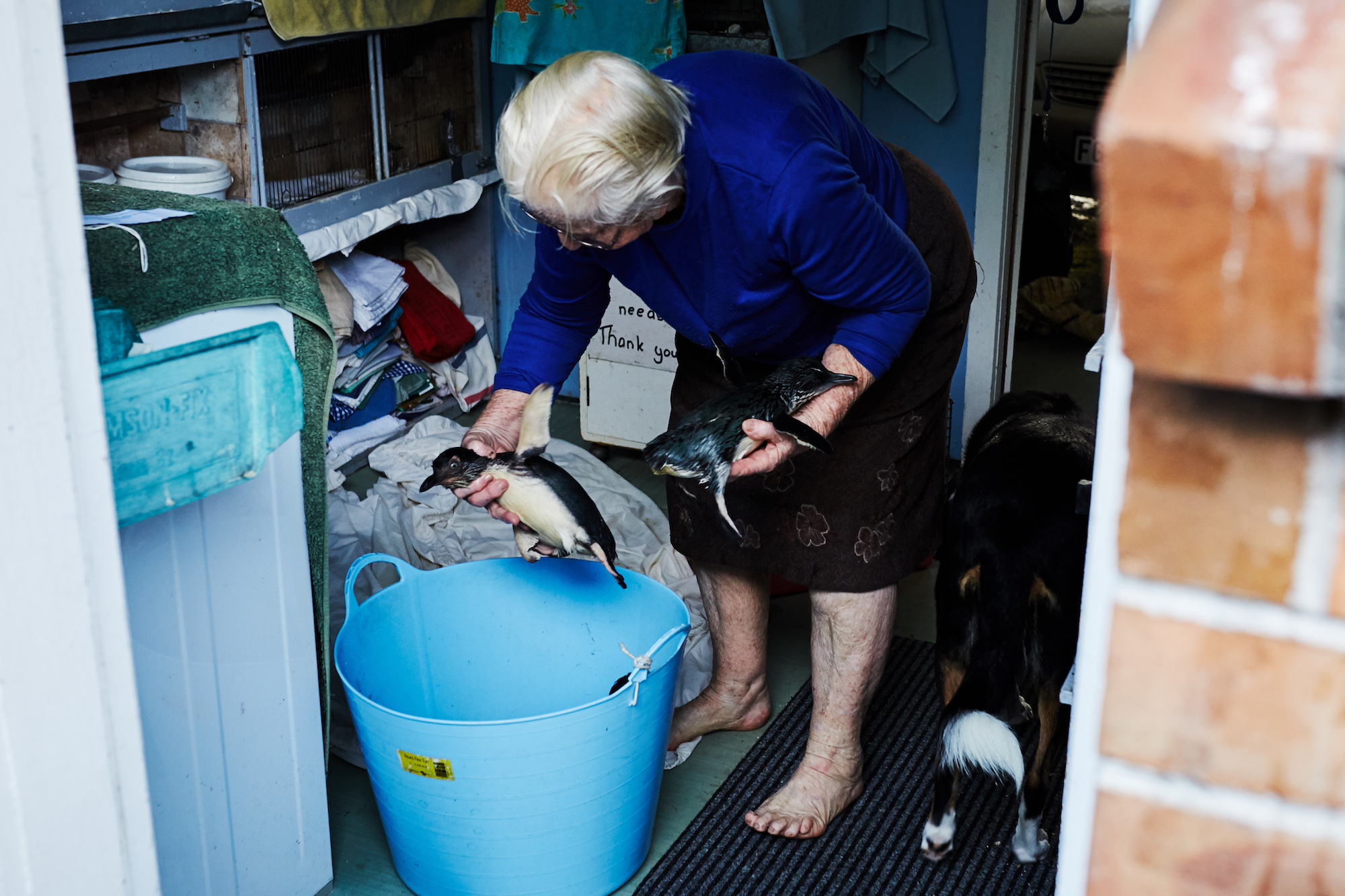
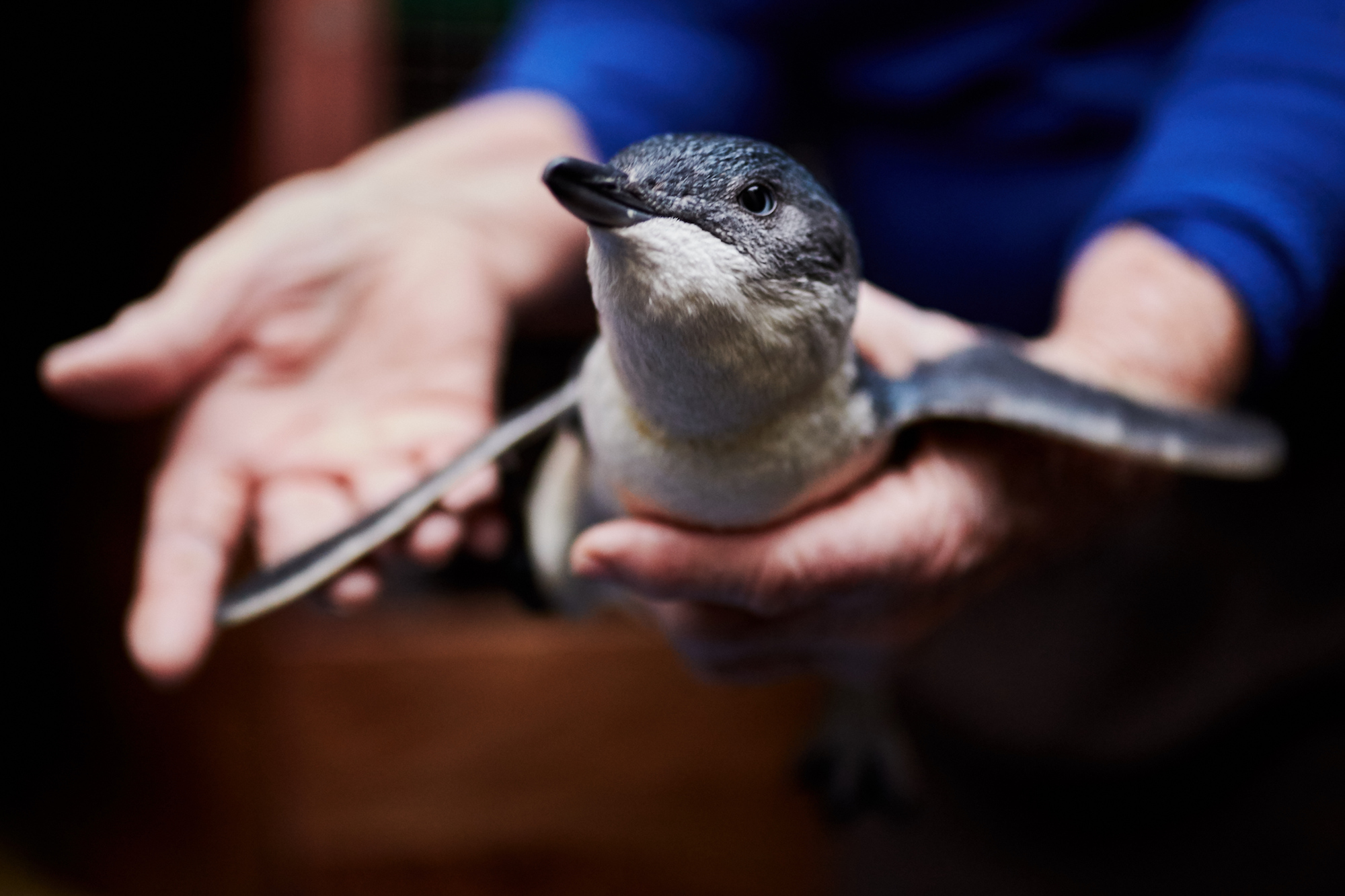






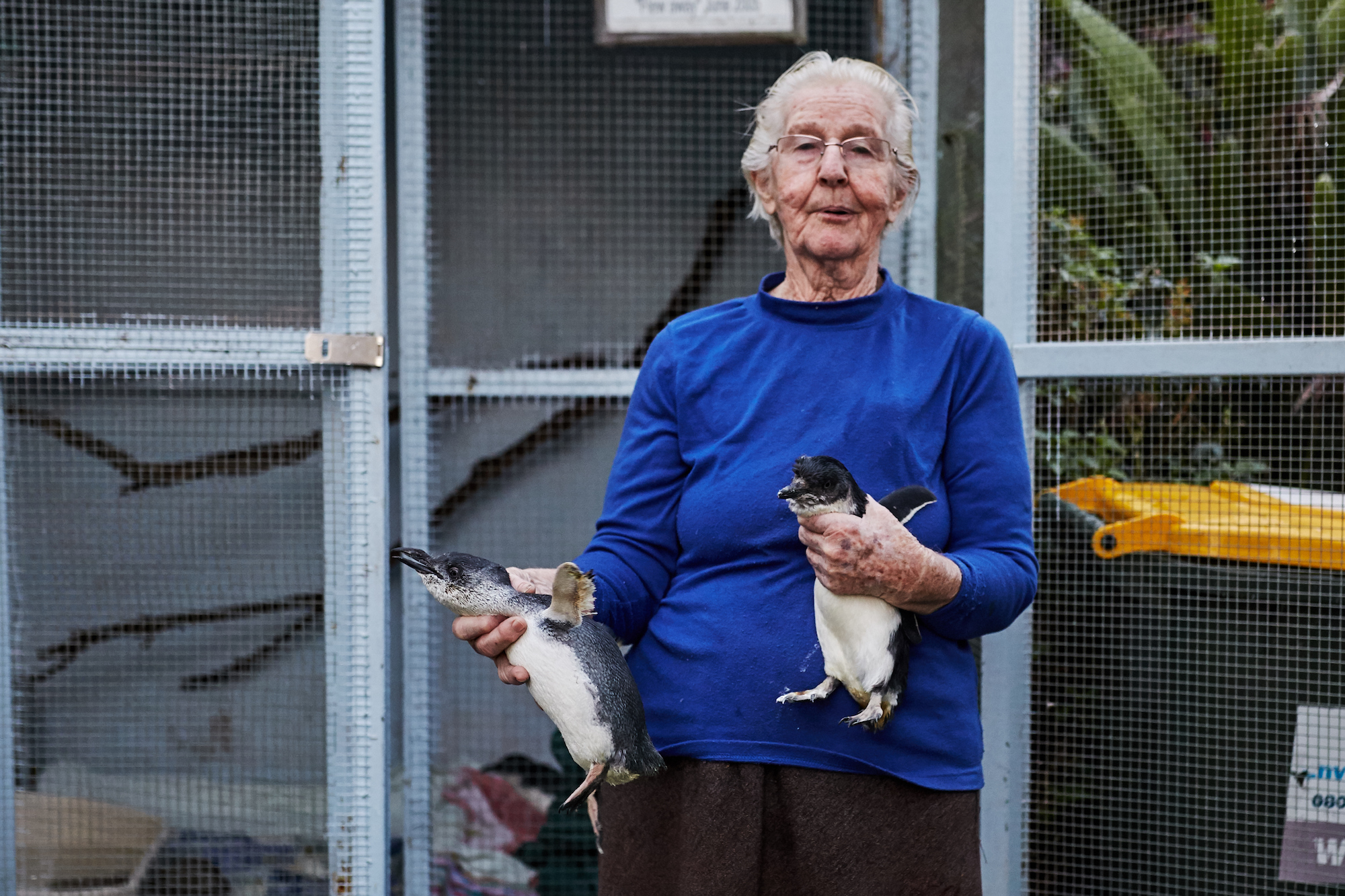


You can help Sylvia keep helping penguins by donating here.
See more from Todd Henry on Instagram here.

